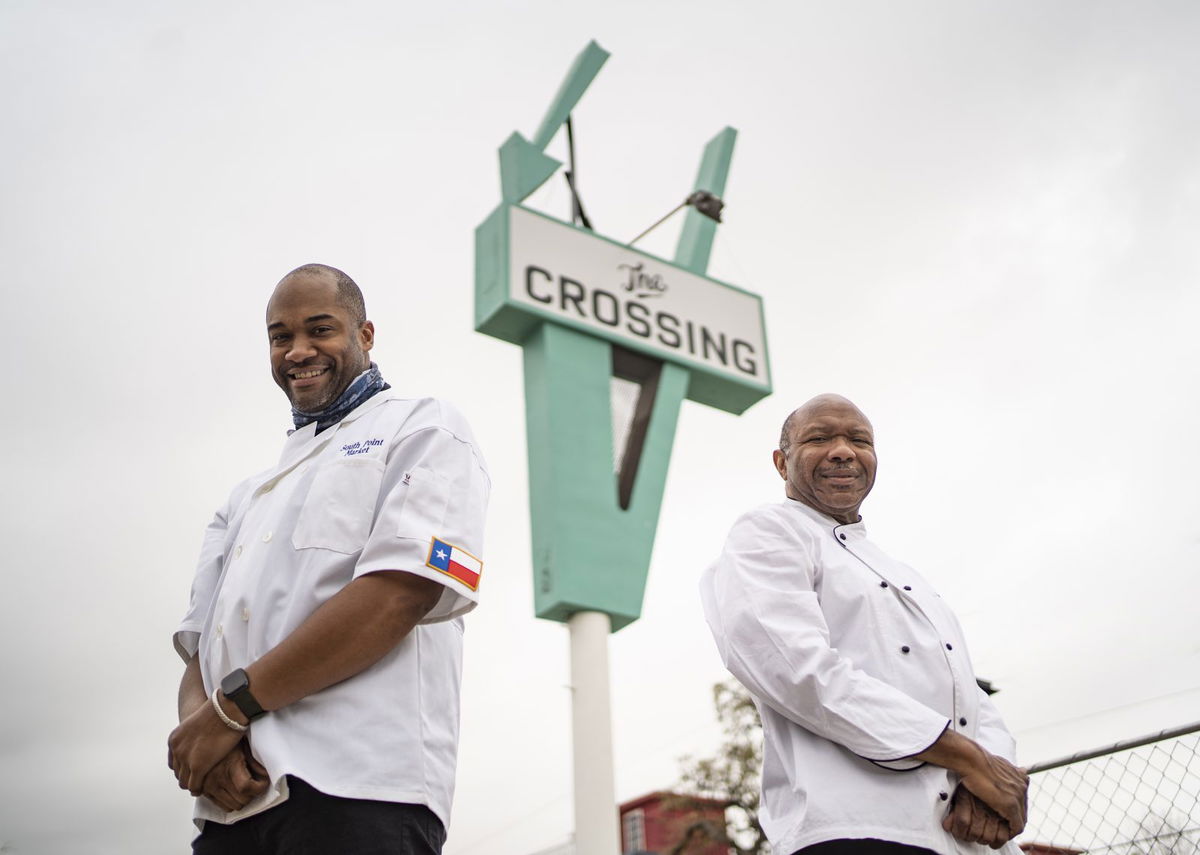
Cecil Struggs, who uses a wheelchair, rolls himself up the ramp to the new laundromat, just two blocks from his South Dallas apartment. His friend Jesse Sheffield walks ahead with a grocery cart filled with dirty clothes.
“I’m just trying to help out,” Sheffield says.
Struggs, 66, feels lucky to have everything he needs within blocks of his home. “It’s a blessing,” he says. “I can have clean clothes and get hot food,” all in one special place.
Cornerstone Baptist Church is spearheading the redevelopment of Struggs’ Cornerstone Heights neighborhood. In 2019, the church opened the laundromat and a bike shop. Last year, the new Cornerstone Community Kitchen began serving free hot meals during the week for neighborhood residents as well as those experiencing homelessness.
Now, in an effort to address food insecurity in the community, the church is launching a neighborhood market that will sell fresh and affordable food. The church is calling it Southpoint Community Market, and it’s set to open this summer.
“These are ways in which grassroots community organizations can address the needs in the neighborhood,” says Cornerstone Pastor Chris Simmons.
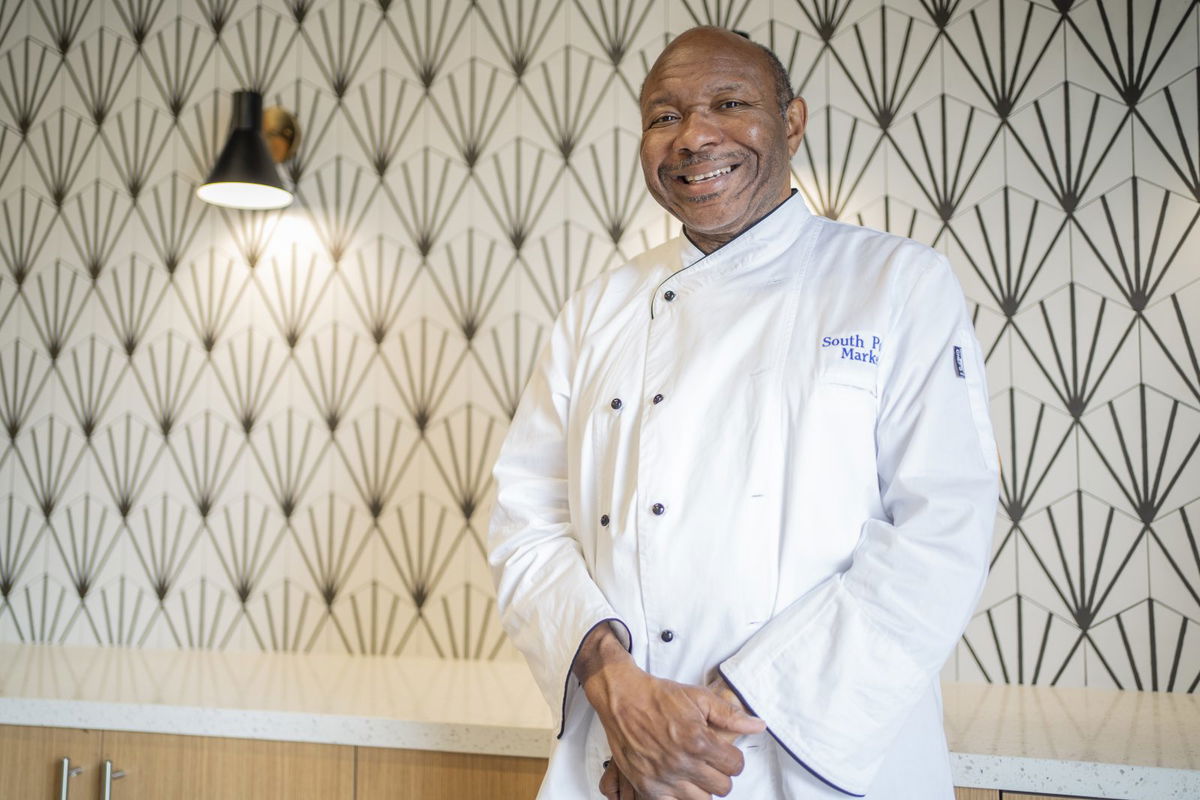
Cornerstone couldn’t make this happen without the financial support of The Real Estate Council Foundation. In 2017, TREC created the Dallas Catalyst Project, focusing its philanthropic resources on the Forest District in South Dallas. So far, the nonprofit has invested more than $1.9 million, partnering with Cornerstone Baptist Church, CitySquare and St. Philip’s School and Community Center.
“This place-based strategy allows you to have a real impact,” says Felicia Pierson, TREC’s senior director of community investment. “Cornerstone is the anchor organization in this community. Being an outsider and coming into these communities and telling people what they need — that doesn’t work. You have to have relationships in order to get anything done.”
A ‘place-based strategy’ in South Dallas
Pierson says Cornerstone has built those relationships in this community. Simmons has been Cornerstone’s pastor for 32 years. The church has a congregation of more than 800 people.
Simmons worked with TREC volunteers to survey residents on what they needed in this sparsely populated neighborhood between Al Lipscomb and Martin Luther King boulevards.
The average income here is less than $16,000 a year. After the laundromat, residents said they wanted an affordable grocery store. The closest supermarket, Fiesta, is more than a mile away. A smaller convenience store, more than half a mile away, had some dairy and frozen food selections, but residents complained that it was too expensive.
TREC put up the initial $480,000 to renovate the space and another $280,000 in in-kind contributions. The City of Dallas’ Economic Development Office will reimburse TREC $390,000 once Southpoint reaches the financial expectations outlined in the proposal — when the market is routinely making about $34,000 a month in profit.
Donald Wesson Jr., Cornerstone’s program director, says he knows that’s going to be difficult in this neighborhood. That’s why he looked for a different model for the market.
With TREC’s help, Wesson found an unlikely source of inspiration: the upscale Royal Blue Grocery. The high-end, compact urban market offers fresh grab-and-go options as well as conventional grocery and convenience items. The Texas chain has a market in Highland Park, as well as other wealthy neighborhoods in Austin and San Antonio.
“If we ran it like a Royal Blue Grocery with the same style of things — the wine, the breads, the artisanal cheeses at that price point — we would have very few customers,” Wesson says. His research showed that their average neighborhood resident in Cornerstone Heights is a 55-year-old African-American man. “But we have a model for how to re-think a grocery store and what food distribution looks like at scale,” he says.
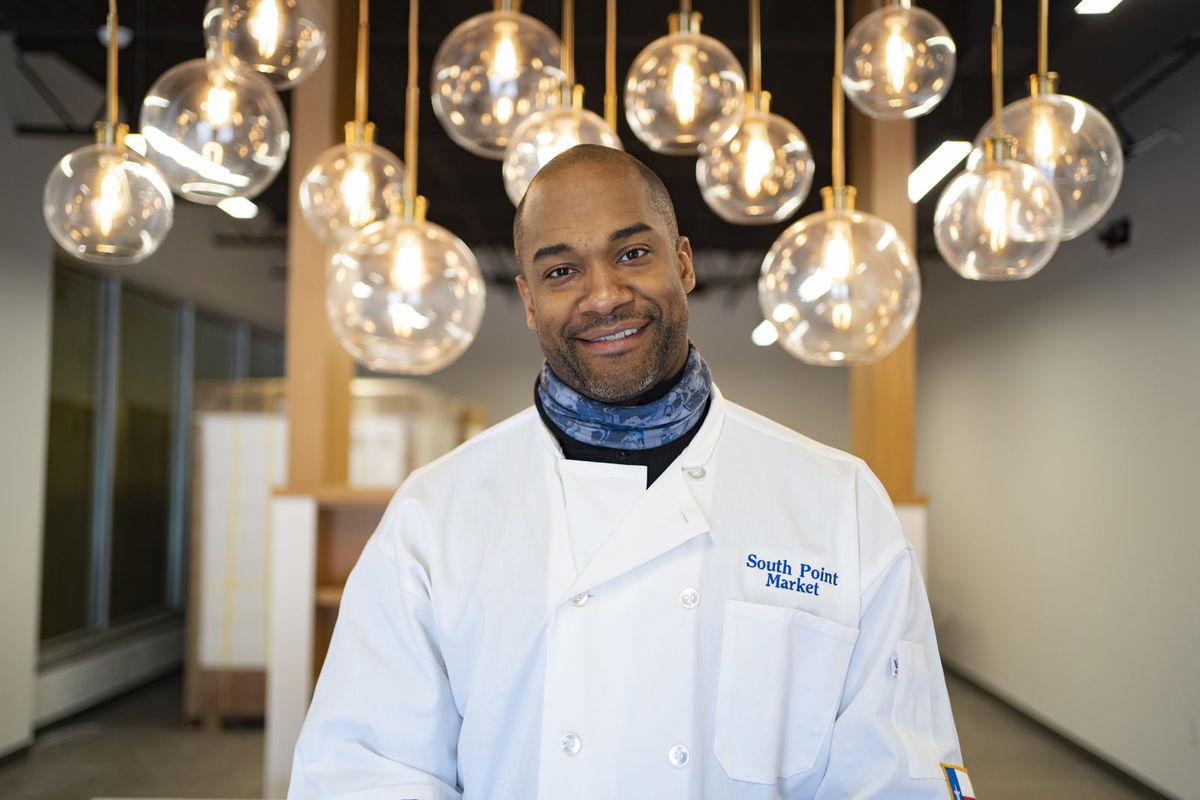
Southpoint is a small 800 square-foot nonprofit market that would sell affordable produce, dairy and essential items, and grab-and-go meals. A 1,500-square-foot for-profit community kitchen would be attached to the market and be a shared space for local food entrepreneurs, small businesses and culinary education programming.
Wesson says the plan would be to charge a fee to use the kitchen, and those dollars would subsidize the market.
“In some cases, we are selling food to food businesses, and buying a portion back to sell through the market,” Wesson says.
Can a ’boutique’ grocer survive in South Dallas?
Edward Fox, SMU professor and chair in marketing, is concerned about the business plan for Southpoint after looking at the City of Dallas’ economic development PowerPoint presentation.
“This is not a response to a food desert,” Fox says. “That’s not what this looks like. It looks like a boutique selling space.”
Fox says the city’s assessment of Southpoint’s profitability is based on flawed calculations. Grocery stores are typically analyzed by looking at shelf space, not overall square footage. The projections, he says, aren’t consistent with scale. Fox says based on his “back of the envelope” calculations, Southpoint would have to sell about $80 dollars a day per square-foot of shelf space to make the city’s proposed profit margins.
“That’s hundreds of transactions in a day, “ Fox says. “The grocery business is a volume business and this is not set up as a volume store. It’s set up much more like a convenience store.”
Convenience stores make most of their money from the sale of alcohol and tobacco. Southpoint doesn’t plan to sell either. Wesson says Southpoint and its adjacent kitchen aren’t using the traditional metrics to test the grocery store.
“Rather than the model of thin margins and pushing a lot of people through the door, we need to create an approach that uses the grocery store as a tool for community development,” Wesson says.
Southpoint’s design is purposely attractive. A large gold, modern light fixture hangs over a white stone counter. Black and white designer tiles cover the entryway walls. Wesson imagines a chic coffee bar for customers.
Fox says to be sustainable, this boutique concept has to have higher pricing to be profitable similar to the scale of Royal Blue Grocery. “This strikes me as much more of a gentrification project rather than a community project,” Fox says “I don’t know if this space and the way it’s designed are consistent with a community market designed to alleviate concerns about access to food.”
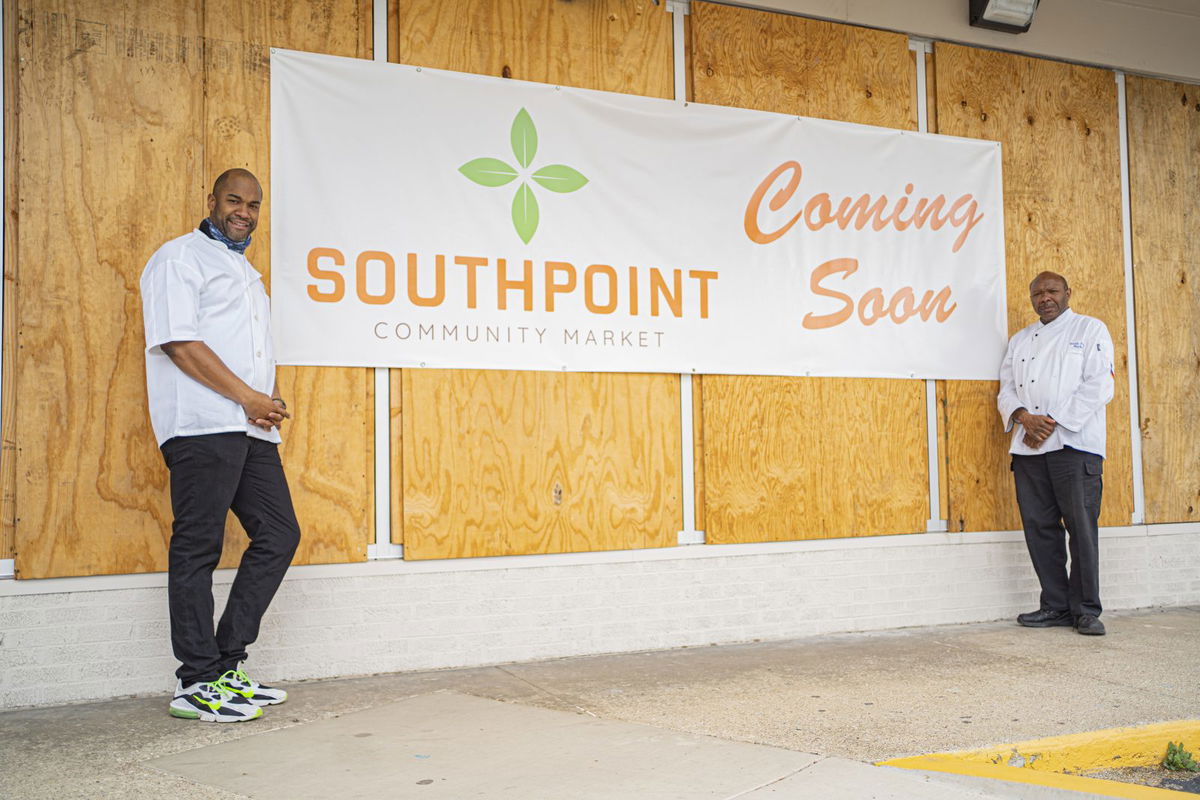
Wesson disagrees. He says there are about 2,000 potential customers who live within a half mile of Southpoint. And, he’s confident the money from the community kitchen would help fund the grocery store.
He is already finding ways to lower costs by partnering with local caterers and restaurants to buy food in bulk from suppliers. Grocery stores rarely make a profit from selling fruits and vegetables because produce has a short shelf-life and is costly to transport. He says by ordering in larger quantities, he will be able to bring down the costs for fresh produce for everyone.
“You realize that you can bring [the store’s] margins down by having [it] be a part of the pool with suppliers,” he says.
‘This neighborhood needs quality, healthy options’
Shanay Wise welcomes that approach. The Fair Park Estates resident, who lives three minutes from Southpoint, owns Catering Done Wisely, an online food and bakery business specializing in pickled veggies and specialty baked goods.
“Cutting costs would be helpful,” she says. Even though she buys some of her vegetables and eggs from local farmers, she still does most of her shopping at Central Market, and she says that can get expensive. “Sometimes, I cannot afford that.”
Wesson says he’s also hoping that Southpoint will give caterers a place to sell their pre-made foods. Wise says she made about $500 in profit in December from online sales, but she knows she can make more money if she had shelf space in a store.
“I think there’s a misconception that people in South Dallas are not looking for fresh foods,” Wise says. “I believe this neighborhood needs a place that has quality, healthy options.”
Wesson says he’s hoping that Southpoint will be something that the community can be proud of and act as a blueprint for future development in the area. “I think it will address food insecurities in the neighborhood,” he says, “but more importantly, act as a model for creating jobs and keeping dollars within the community.”
Cornerstone plans to cover costs and expenses for Southpoint until it becomes sustainable. They don’t have a timeline for how long they will cover costs, but did say they hope to raise funds through grants and other outside sources.
TREC is also committed to supporting Cornerstone. Pierson says, “While there are no certain guarantees for success, our partnership with Cornerstone on Southpoint is focused on fostering its success and providing fresh food and other essential services in a location convenient to the community. The pandemic has only continued to prove the value of safe, walkable access to basic needs like fresh groceries.”
It’s difficult to imagine a fancy market next to a homeless food shelter, but Wesson isn’t overly concerned. He says people here have pride and would rather buy their own food instead of eating for free.
“We do a lot for the community,” he says, pointing to Cornerstone’s substance abuse classes, prison re-establishment programs and eyeglass and dental clinics. “And there are still opportunities to meet that need, but we are in the maturation stage in 2021, now we’re empowering you with social mobility — through job creation and healthy foods.”
Struggs says he will definitely shop at Southpoint. He says he’d rather buy his own food, and a local market makes it more convenient than taking the bus to Fiesta. But his disability check only gets him so far before he needs access to free food like Cornerstone’s hot meal shelter.
“I just live month to month,” he says, “and just stretch as I go.”
This story is part of a project on potential solutions to food insecurity in South Dallas and West Dallas. It’s reported through a partnership between Dallas Free Press and The Dallas Morning News, with support from the Solutions Journalism Network. Sujata Dand can be reached at sujata@dallasfreepress.com.
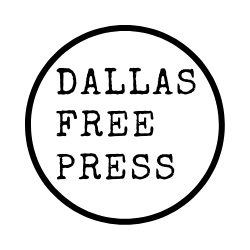
Leave a Reply